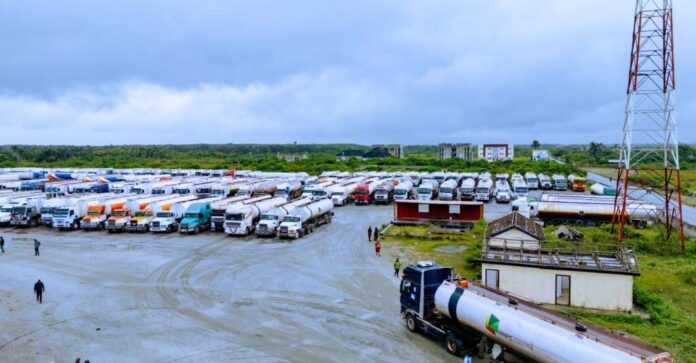The Nigerian National Petroleum Company Limited (NNPCL) has reduced the pump price of Premium Motor Spirit (PMS), commonly known as petrol, across its retail outlets nationwide.
Reports from major cities, including Ibadan and the Federal Capital Territory (FCT), indicate a price drop of between ₦10 and ₦25 per litre.
In Ibadan, petrol prices have fallen from between ₦1,025 and ₦1,040 per litre to ₦1,015 per litre.
Similarly, in the FCT, filling stations owned by NNPCL have adjusted their prices from ₦1,060 to ₦1,040 per litre.
A filling station attendant along the Kubwa Expressway in Abuja confirmed the change to the Daily Post, saying, “The price was reduced to ₦1,040 per litre from ₦1,060 on Saturday morning.”
This reduction has been welcomed by Nigerians, who have endured high fuel costs since the removal of subsidies earlier this year.
Background to the Crisis
The price of petrol in Nigeria skyrocketed in May 2024 after the government removed subsidies on petroleum products.
This policy led to prices jumping from ₦190 per litre to over ₦1,000 in some regions, sparking widespread protests and public outcry.
Many Nigerians struggled to cope with the sudden increase, as the cost of transportation, goods, and services soared in response.
The government argued that subsidy removal was necessary to free up funds for infrastructure projects and social programmes.
However, critics accused the administration of failing to provide adequate cushioning measures for citizens, leading to what some called “the worst hardship in recent memory.”
A Glimmer of Hope
The reactivation of the Port Harcourt refinery in November 2024 marked a turning point in Nigeria’s downstream petroleum sector.
The refinery, with a capacity of 60,000 barrels per day, resumed operations after years of dormancy and billions of naira spent on rehabilitation.
Coupled with the Dangote Refinery’s production of 650,000 barrels per day, industry experts had predicted a gradual decline in petrol prices as local refining capacity improved.
The Independent Petroleum Marketers Association of Nigeria (IPMAN) and the Petroleum Products Retail Outlets Owners Association of Nigeria (PETROAN) had earlier hinted at potential price reductions due to increased local supply.
“This is a direct result of deregulation and increased refining activities,” said a source within IPMAN. “The more refineries come on stream, the more stable prices will become.”
Public Reaction
The news of the pump price reduction has elicited mixed reactions from Nigerians.
While many see it as a sign of relief, others remain sceptical about whether the trend will continue.
A commuter in Abuja, Musa Ahmed, expressed his concerns: “This reduction is good, but it’s not enough. Prices are still too high for ordinary Nigerians.”
Another resident in Lagos, Olajumoke Adeyemi, welcomed the change but urged NNPCL to issue an official statement. “We need transparency. Let them tell us if this reduction is permanent or temporary.”
NNPCL’s Silence
As of now, NNPCL has not issued an official statement on the price adjustment.
This lack of communication has led to speculation about the motive behind the reduction.
Some analysts believe the price cut is a strategic move to win public favour amidst growing criticism of the government’s economic policies.
Others argue that it may be linked to improved efficiency in the supply chain, thanks to increased local refining capacity.
What Lies Ahead?
Despite the modest reduction, petrol prices in Nigeria remain significantly higher than in many African countries.
For instance, in Ghana, petrol is currently sold at ₦740 per litre, while in Kenya, it is priced at ₦820 per litre.
Industry experts warn that sustaining lower prices will depend on several factors, including the stability of crude oil prices on the international market and the operational efficiency of local refineries.
“While this is a step in the right direction, the government must address other systemic issues,” said energy analyst, Dr. Tunde Balogun.
He emphasised the need for improved storage facilities, better distribution networks, and the elimination of bottlenecks in the supply chain.

